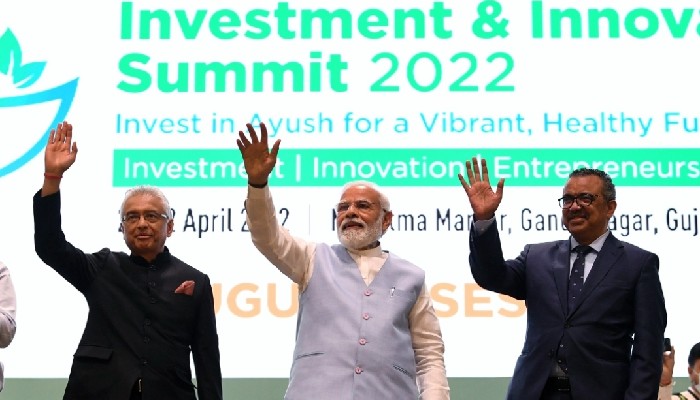As per the President, effective implementation of the NEP 2020 is likely to restore India’s glory as a great centre of learning as during the times of Takshashila and Nalanda
President Ram Nath Kovind on Saturday said the National Education Policy aims to reorient the education system towards meeting the needs of the 21st century by achieving the twin objectives of inclusion and excellence.
In his inaugural address of Visitors’ Conference, via video conferencing, he said, “The NEP sets the vision of developing an equitable and vibrant knowledge society by providing quality education to all.”
Describing the novel features of NEP, President Kovind said that it would also introduce the system of Academic Bank of Credits.
“It would digitally store the academic credits earned from various Higher Education Institutions so that degrees can be awarded, taking into account the credits earned by students. This would allow students the freedom to take courses as per their vocational, professional or intellectual requirements in addition to giving flexibility of suitable exit and re-entry points. The need for strict monitoring of B.Ed., vocational and distance-learning courses is also being taken care of in this policy,” he added.
The President also highlighted that the target of the NEP 2020 is to increase the Gross Enrolment Ratio or GER in higher education to 50 percent by 2035. He observed that the online system of education
Encouraging institutions of higher education, President Kovind observed that these institutes have greater responsibility of making India a global knowledge superpower.
“The quality standards set as benchmark by these institutions would be followed by other institutions,” the President said, adding that fundamental principles of the NEP include creativity and critical thinking in order to encourage logical decision-making and innovation.
He drew inspiration from Bhagvad Gita and the Krishna-Arjun dialogue while reiterating the concept of free communication and discussion between the teacher and the student. The NEP also seeks to encourage critical thinking and spirit of enquiry.
He opined that effective implementation of the NEP 2020 is likely to restore India’s glory as a great centre of learning as during the times of Takshashila and Nalanda.
Appreciating the efforts of the Education Ministry and Dr. Kasturirangan and his team, who prepared the policy, the President mentioned that the NEP has been prepared after extensive consultation with 2.5 lakh gram panchayats, more than 12,500 local bodies and about 675 districts generating more than two lakh suggestions thereby reflecting a ground-level understanding.
 Contact Us
Contact Us  Subscribe Us
Subscribe Us









 Contact Us
Contact Us
 Subscribe
Subscribe
 News Letter
News Letter

